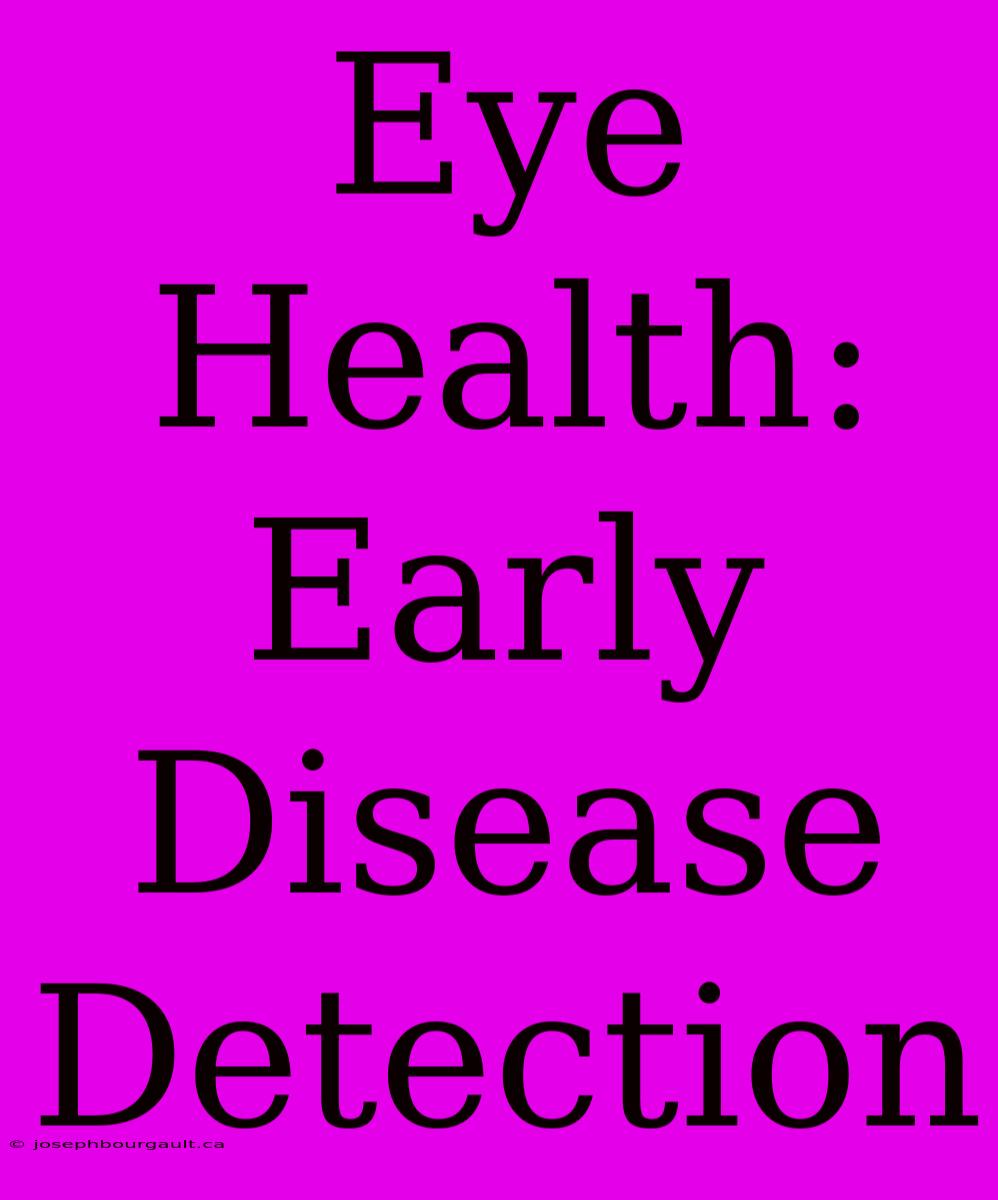Eye Health: Early Disease Detection - Protecting Your Vision for Life
Our eyes are precious and complex organs that allow us to experience the world around us. However, like any part of our body, they are susceptible to disease and deterioration. Early detection is crucial for managing and potentially preventing vision loss. This article will delve into the importance of regular eye exams and highlight key eye conditions that can be detected early.
Why Regular Eye Exams Matter
Regular eye exams aren't just about checking your vision. A comprehensive eye exam conducted by an optometrist or ophthalmologist can detect a range of conditions, including:
- Refractive errors: These are the most common eye problems, such as nearsightedness, farsightedness, and astigmatism. They are usually easily corrected with eyeglasses or contact lenses.
- Glaucoma: This condition damages the optic nerve, which transmits visual information from the eye to the brain. Early detection is key, as glaucoma often has no symptoms in its early stages.
- Macular degeneration: This is a leading cause of vision loss in people over 50. It affects the macula, the central part of the retina responsible for sharp, central vision.
- Diabetic retinopathy: This occurs when diabetes damages the blood vessels in the retina, leading to blurry vision or vision loss.
- Cataracts: Clouding of the natural lens of the eye, cataracts can affect vision and can be treated surgically.
- Dry eye disease: A condition where the eyes don't produce enough lubrication, dry eye can cause irritation, discomfort, and blurred vision.
Signs You Should See an Eye Doctor
Even if you don't experience any vision problems, it's essential to see an eye doctor regularly. Here are some signs that suggest you should schedule an appointment:
- Blurred vision: This can be a symptom of refractive errors, cataracts, or other eye conditions.
- Double vision: This can be a sign of a serious eye problem, such as a detached retina or nerve damage.
- Eye pain or discomfort: This could be caused by dry eye, an infection, or other eye problems.
- Seeing floaters or flashes: This could be a sign of a retinal tear or detachment.
- Changes in your peripheral vision: This could indicate glaucoma or another eye condition.
Protecting Your Vision
While regular eye exams are vital, there are other steps you can take to protect your eye health:
- Wear protective eyewear: Sunglasses, safety glasses, and goggles can protect your eyes from harmful UV rays, dust, and debris.
- Maintain a healthy lifestyle: Eating a balanced diet, exercising regularly, and managing conditions like diabetes and high blood pressure can help reduce your risk of eye disease.
- Avoid smoking: Smoking increases your risk of developing cataracts, macular degeneration, and other eye problems.
- Know your family history: Some eye conditions, such as glaucoma, can be inherited. If you have a family history of eye disease, it's especially important to get regular eye exams.
Final Thoughts
Early detection is key to protecting your vision and preventing vision loss. Schedule regular eye exams, pay attention to any changes in your vision, and maintain a healthy lifestyle. By taking these steps, you can help ensure that you enjoy clear and healthy vision for years to come.

